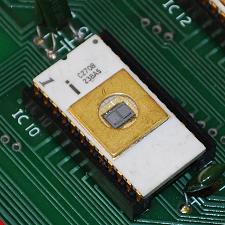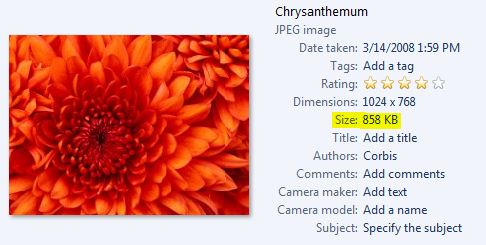What is a megabyte, gigabyte, bit, and byte?

byte – a unit of measure for digital information equal to 8 bits.
i.e. “You have 200 gigabytes of free space on your hard drive.”
“Your photo is too large. Please upload a file under 4MB (megabytes).”
One of my computer science professors in college explained it this way:
Your computer stores information in cubby holes – lots of cubby holes. One cubby hole can hold one bit of information. One byte equals 8 bits of information. Computers only understand numbers, so each bit, or each cubby hole, holds a “1” or a “0” (This is called binary code).
For example, the way a computer stores a capital letter “A” is “01000001” – each number is one bit, and the letter “A” is one byte of information.
So, you can think of computer storage this way:
bit: []
byte: [][][][][][][][]
photo courtesy of David Nestor
Bits and bytes are tiny, though. Today, you really only use kilobytes (KB), megabytes (MB), and gigabytes (GB) when talking about computer storage. For example, the cubby hole image above is 18 KB (kilobytes). One 200 page book is about 1 MB. You can get an idea of how large one megabyte and gigabyte is by right clicking items on your computer and looking at “Properties”.

Here’s a table of other units of measure for computer storage:
| Unit | Equivalent |
| 1 kilobyte (KB) | 1,024 bytes |
| 1 megabyte (MB) | 1,048,576 bytes |
| 1 gigabyte (GB) | 1,073,741,824 bytes |
| 1 terabyte (TB) | 1,099,511,627,776 bytes |
| 1 petabyte (PB) | 1,125,899,906,842,624 bytes |
For the average computer user, here are some situations in which you would need to know what megabyte and gigabyte means:
- Looking at how much space you have left on your computer hard drive.
Sometimes, your computer runs slow because you start to run out of space on your hard drive. If this happens, you may get a “Low Disk Space” error. - Knowing how long it takes to download files. Larger files will take longer to download.
- Knowing how much space you have in your e-mail inbox.
- Shopping for SD memory cards, USB flash drives, or external hard drives.
For example, a 2 GB SD card will hold about 770 photos on a 10 megapixel camera.
To ensure that you always have enough bytes of free space on your computer, download a PC optimizer like Free Computer Maintenance. Sign up for Free Computer Maintenance by letting us know your name and e-mail and clicking “Get Started!” in the upper right hand corner.